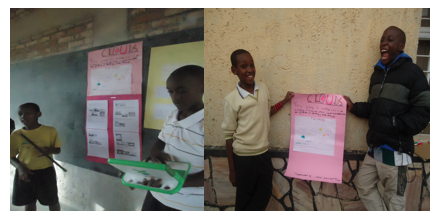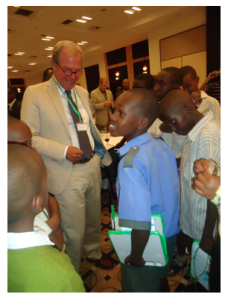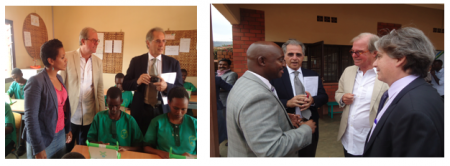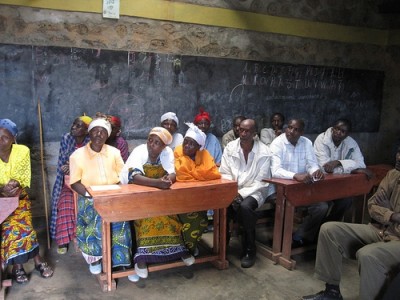 The Center CECYDAR/FIDESCO RWANDA was founded in 1992 by a Rwandan couple, Cypria and Daphrose RUGAMBA. The Center has welcomed children from very disadvantaged backgrounds.
The Center CECYDAR/FIDESCO RWANDA was founded in 1992 by a Rwandan couple, Cypria and Daphrose RUGAMBA. The Center has welcomed children from very disadvantaged backgrounds.
When children arrive at the Center, they enter a process of physical and psychological rehabilitation, as well as an intellectual and spiritual one. The goal is to heal the whole child and ultimately reunite them with their families, whenever possible. As soon as the home and family situation permits, children are reunited with family and reintegrated into their community.
The more than twenty years of experience in the field have provided the Center with real expertise in the rehabilitation of children. The center is truly an expert organization in the successful reintegration of these children into their families and communities. It now has an effective, proven methodology, which has helped many children return to their families and to education.
CECYDAR/FIDESCO RWANDA is convinced that the most natural and ideal living environment for a child is always his or her family. The Center seeks to reintegrate the child as soon as possible in a family environment (nuclear family, extended family or foster family). This reunification is accompanied by certain measures aimed at improving the economic situation of the family. After reunification, the Center monitors the short, medium and long term needs of the child. The Center can accommodate up to 50 children at a time. The average stay for a child lasts 3 to 6 months.
While living in the Center CECYDAR/FIDESCO RWANDA, children have the opportunity to participate in the One Laptop per Child Program. Through an Open OLPC Learning room known as the “OLPC Cornerâ€, children have the opportunity to participate in three week camps. This is often the first time many of these children have attended school. During these camps, children have the opportunity to acquire “Knowledge by OLPC” by the use of OLPC laptops as they explore the learning process.
Participating children have the opportunity to learn to read, write stories, play educational games such as typing Tuttle, memorize, maze and dare, using the OLPC laptops. Other students have the opportunity to learn simple programming languages, including Scratch and Turtle Art. Celestine Ngarambe, of OLPC, is in charge of leading the children in their educational journeys. She assesses each child to ascertain his or her educational level and guides them as they learn to use the OLPC laptops.















